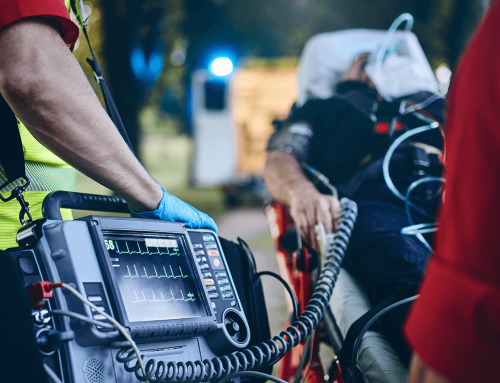March is prostate cancer awareness month, and this year it’s even more important then ever to raise awareness. Why? Because prostate cancer has now overtaken breast cancer and is the third biggest cancer killer in the UK, taking one man every 45 minutes*. It is estimated that 1 in 8 men will develop prostate cancer and there are 40, 000 new cases of prostate cancer diagnosed in the UK each year, most of which occur over 65 years of age. To help make sure you (or the man in your life) spots the signs and seeks early medical advice Essex Private Doctors GP Dr Alice Scott has created this guide…
What is the prostate?
The prostate is a gland which is located beneath the bladder in men. The urethra (the tube that connects the bladder to the outside world, through which urine passes) runs through the middle of prostate. The purpose of the prostate is to produce fluid which mixes with sperm (which are made in the testes) and together they form semen.
It is a normal part of ageing for the prostate to enlarge in men, and by the age of 70, 8 in 10 men will have an enlarged prostate. In many cases the enlargement of the prostate is benign (not cancerous) but in some the enlargement will be due to prostate cancer. We don’t know why some cells in the prostate become cancerous. There appears to be a genetic link as if one first degree relative has prostate cancer, the risk of developing it is doubled, it is also more common in men of African-Caribbean family origin.
What are the symptoms of prostate cancer?
As the urethra runs through the middle of the prostate, enlargement of the prostate, either benign or cancerous, can cause compression of the urethra and the bladder. This can lead to the following symptoms:
- Poor stream – the flow of urine is weaker
- Dribbling – a bit more urine may trickle out after you think you have already finished
- Frequency – you may pass urine more often than normal
- Urgency – you may have to rush to get to the toilet
- Hesitancy – you may have to wait at the toilet for a while before you can get going
- Incomplete emptying – you may have a feeling of not quite emptying your bladder
Other less common symptoms which can be associated with prostate cancer but not benign enlargement include:
- Pain at the base of the penis
- Passing blood in your urine
- Advanced prostate cancer can spread, in particular, to bones and these can become painful.
How is prostate cancer diagnosed?
There is no single test for prostate cancer. There is a blood test for Prostate Specific Antigen (PSA) which if raised, can sometimes indicate prostate cancer. However, the PSA blood test can also be raised for a number of other reasons including: benign enlargement of the prostate, urine infection and inflammation of the prostate. It can sometimes still be normal even in the presence of prostate cancer. As the PSA blood test can sometimes be unreliable it is usually accompanied with a physical examination of the prostate via a digital rectal examination. If the PSA blood test or the rectal examination were abnormal then usually a prostate biopsy or MRI scan would be performed to look at the prostate in more detail.
What is the treatment for prostate cancer?
If prostate cancer is diagnosed in an early stage and is not causing any symptoms, then sometimes it is carefully monitored for a period of time until further intervention is required. In other cases, surgical treatments, radiotherapy or hormone therapy may be used.
How can we help?
If you have concerns about symptoms you may be experiencing (no matter how minor they may seem), or any issues raised in this article, please make an appointment to see one of our experienced GPs to discuss this further. Call our helpful reception team today on 01277 201 001.
We can discuss your concerns and symptoms with you, examine you, perform a PSA blood test at the surgery, and arrange onward referral to a specialist if necessary.
We also offer a Well Man screening service at the surgery which includes a prostate examination and PSA blood test.
References:
https://www.nhs.uk/conditions/prostate-cancer/
https://patient.info/health/prostate-cancer-leaflet
https://patient.info/doctor/prostate-cancer-pro
*https://prostatecanceruk.org/get-involved/march-for-men






